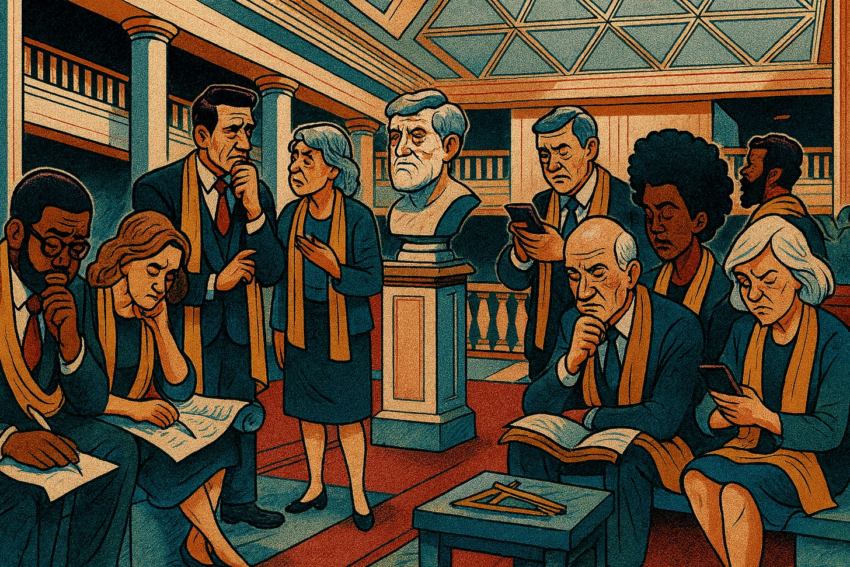Former Vice President Kamala Harris took a lot of flak last year, deservedly so, for using the same convoluted phrasing in all her speeches: “what can be, unburdened by what has been.”
It’s a little too pseudo-intellectual for my tastes, but the sentiment honestly isn’t half bad.
Too often, our debates start on a slider: more Medicaid or less, bigger child tax credit or smaller, fund day cares directly or not at all. When the argument is only “more vs. less,” it’s easy to caricature the other side and miss the point altogether.
There’s an older habit worth recovering: Start with purpose. Philosophers call it telos or first principles. In Catholic circles, it shows up as the natural law. In plain language, it’s a simple question. What is this for?
For example, what is the role of government-paid health insurance? Or is the government’s priority actually to encourage day care use at all?
Those questions are harder to argue on TV. They also tend to produce better policy.
That’s the frame I brought to a new controversy in Mecklenburg County: a recording studio and a ticketed dinner series inside the jail. It would be easy to lob a few “soft-on-crime” grenades and move on. But the useful question isn’t left or right; it’s about first principles: What is jail for?
If that’s your kind of politics, you can read the column here: Mecklenburg jail should be where justice begins, not music careers (read free with this gift link).
Call it first principles, call it the Socratic method, call it natural law. Heck, call it “what can be.” The point is to keep asking what an institution is for before deciding what to do with it.
If we start there more often, our policies will look less like vibes and more like governing.
Quick hits
Here’s a run-down of my other newspaper column last week.
Charlotte transit: Say yes — and cut the streetcar
When it comes to the Mecklenburg sales tax referendum this fall, some on the right sees a tax hike and billions in new government spending. The far left sees gentrification and bus riders left out. Others simply see a plan that falls short of the vision they want. “Is it really better than nothing?” they all ask.
The short answer is yes: It is better than nothing.
➡️ Read my Observer column: Yes, Charlotte’s transit plan is better than nothing (read free with this gift link)
The potential deal-killer, though, is the Gold Line streetcar—slow, costly, and not about moving people. City Council should remove it before the plan goes to voters.
▶️ Watch this quick video on why the streetcar has to go
Important reads
-
In an AI world, judgment is the new superpower (Personal Math on Substack)
-
Leading candidates in US Senate race are 8 points apart (Carolina Journal)
Top spenders on social media last week
Question of the week
First, your update from last week’s polls. We ended in a dead heat on N.C. nicknames — Tar Heel State and Old North State each grabbed 47%, with the rest far behind.
On toll roads, readers were skeptical but split: 50% called them a bad idea, 25% said only for brand-new roads, and 19% saw them as a fair funding tool.
Click this link for the original source of this article.
Author: Andrew Dunn
This content is courtesy of, and owned and copyrighted by, https://longleafpolitics.substack.com and its author. This content is made available by use of the public RSS feed offered by the host site and is used for educational purposes only. If you are the author or represent the host site and would like this content removed now and in the future, please contact USSANews.com using the email address in the Contact page found in the website menu.










